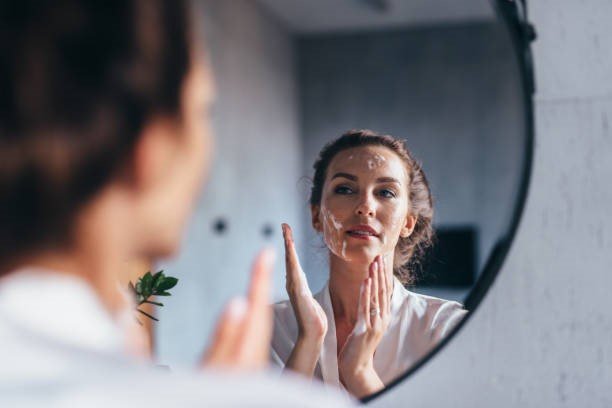No products in the cart.
Taking care of your skin is like tending to a delicate garden; it requires attention, nourishment, and the right tools. But with the Goree Cosmetics skincare products and routines out there, finding what works best for your skin can feel like navigating a maze blindfolded. Fear not! In this guide, we’ll unveil the secrets to crafting the best skin care routines for all skin types so you can achieve that radiant, healthy glow you’ve always dreamed of.
Before we delve into the nitty-gritty of best skin care routines for all skin types, let’s understand the basics. Our skin, the body’s largest organ, comes in various types, each with its own set of quirks and needs. By tailoring your skincare routine to your specific skin type, you can optimize its health and appearance.
Understanding Different Skin Types
Normal Skin
Normal skin is the gold standard of skin types. It’s well-balanced, neither too oily nor too dry, with small pores and a smooth texture.
Dry Skin
Dry skin is dehydrated and lacks moisture. It may feel tight, rough, and prone to flakiness or irritation.
Oily Skin
Oily skin tends to produce excess sebum, leading to shine, enlarged pores, and a higher likelihood of acne breakouts.
Combination Skin
Combination skin is a mix of both oily and dry areas. Typically, the T-zone (forehead, nose, and chin) is oily, while the cheeks remain dry.
Importance of a Skincare Routine
Regardless of your skin type, establishing a consistent skincare routine is crucial. It’s not just about achieving that Instagram-worthy complexion; it’s about nurturing your skin’s health and vitality from the inside out.
Building Your Skincare Routine
Now that you grasp the fundamentals, let’s construct your personalized skincare regimen.
Cleansing
Start your day by cleansing away impurities and oil buildup. opt for a gentle cleanser that won’t strip your skin of its natural oils.
Exfoliating
Exfoliation sloughs away dead skin cells, revealing fresher, smoother skin underneath. Choose a chemical or physical exfoliant suited to your skin type, and use it 2-3 times per week.
Moisturizing
Hydration is key, no matter your skin type. Use Goree beauty cream which moisturizes,and strengthens your skin’s natural barrier.
Sun Protection
Never leave the house without applying sunscreen. UV rays can wreak havoc on your skin, leading to premature aging and even skin cancer. Opt for a broad-spectrum sunscreen with SPF 30 or higher.
Tailoring Your Routine
Customize your skincare routine to fit your lifestyle and preferences.
Morning Routine
In the morning, focus on protecting your skin from environmental stressors. Cleanse, apply Goree Facewash antioxidant-rich, moisturize, and finish with sunscreen.
Nighttime Routine
At night, shift your focus to repair and renewal. Remove makeup and impurities, use targeted treatments like Goree day and night beauty cream, moisturize, and let your skin rejuvenate as you sleep.
Conclusion
Congratulations! You’re now armed with the knowledge to craft the perfect skincare routine for your skin type. Remember, consistency is key, so stick to your regimen diligently, and watch your skin transform before your eyes. Here’s to healthy, glowing skin that radiates beauty from within!
FAQs
Can I use the skincare products year-round?
While some products may work well throughout the year, your skin’s needs can change with the seasons. Consider adjusting your routine accordingly.
Is it necessary to use all the steps in a skincare routine?
Not necessarily. Start with the basics (cleansing, moisturizing, and sun protection) and gradually incorporate additional steps based on your skin’s needs.
How long does it take to see results from a new skincare routine?
It varies from person to person, but you may start noticing improvements within a few weeks to a couple of months of consistent use.
Can I skip sunscreen if it’s cloudy outside?
UV rays can penetrate through clouds, so it’s essential to wear sunscreen regardless of the weather.
What should I do if my skin reacts negatively to a new product?
Discontinue use immediately and consult a dermatologist if the reaction persists or worsens.


